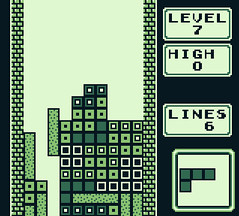 One of the signs that a child might have ADHD is that the child has extreme difficulties with concentration. This doesn’t mean that he or she is never able to focus on anything, ever, though. Kids who have ADHD often find it easy to focus on information that is on a television or computer screen. It may sound contradictory, but there are some good reasons why this happens.
One of the signs that a child might have ADHD is that the child has extreme difficulties with concentration. This doesn’t mean that he or she is never able to focus on anything, ever, though. Kids who have ADHD often find it easy to focus on information that is on a television or computer screen. It may sound contradictory, but there are some good reasons why this happens.
Children who have ADHD often find it difficult to concentrate when they are in a school environment. This is one of the first signs of ADHD that a teacher will pick up on, and mention to a parent. On it’s own, a lack of focus doesn’t necessarily mean that a child has ADHD. It takes more than just one observation in order to diagnose a child with this disorder. Otherwise, a lack of concentration could indicate anything from a sleepless night to autism.
Many children who have ADHD find it easy to focus for hours on a television or computer screen. Sometimes, parents will assume that their child couldn’t possibly have ADHD, because he can sit for hours on end playing a video game. The assumption is that if he can focus on video games then there isn’t any reason why he cannot focus on what the teacher is saying at school.
One thing that parents need to realize, though, is that there is something about video games that works extremely well with the brains of children (and adults) who have ADHD. When your child is playing a video game, there are frequent intermittent rewards. Your child is earning points, or raising his character to a new level, or completing one part of the game and unlocking another part. This can cause a person’s brain to release a certain amount of dopamine.
Dopamine is a neurotransmitter that makes you feel good. This is what causes people to like certain foods, and to enjoy doing a favorite hobby, (to name just a few examples). The quick pace of the video game, combined with the frequent rewards, can cause the brain of a person who is a gamer to release dopamine. This is normal.
Some studies have shown that kids who have ADHD have brains that are wired a bit differently than the brains of kids who don’t have ADHD. Kids with ADHD may have some deficiencies in the pathways in their brains that make connections with a pleasurable activity and a release of dopamine. Other studies found that kids who were treated for ADHD with Ritalin tended to play less video games than they did before the use of the drug. This could mean that there is something about video games that is self-medicating for kids who have ADHD.
Image by Connor Lawless on Flickr

